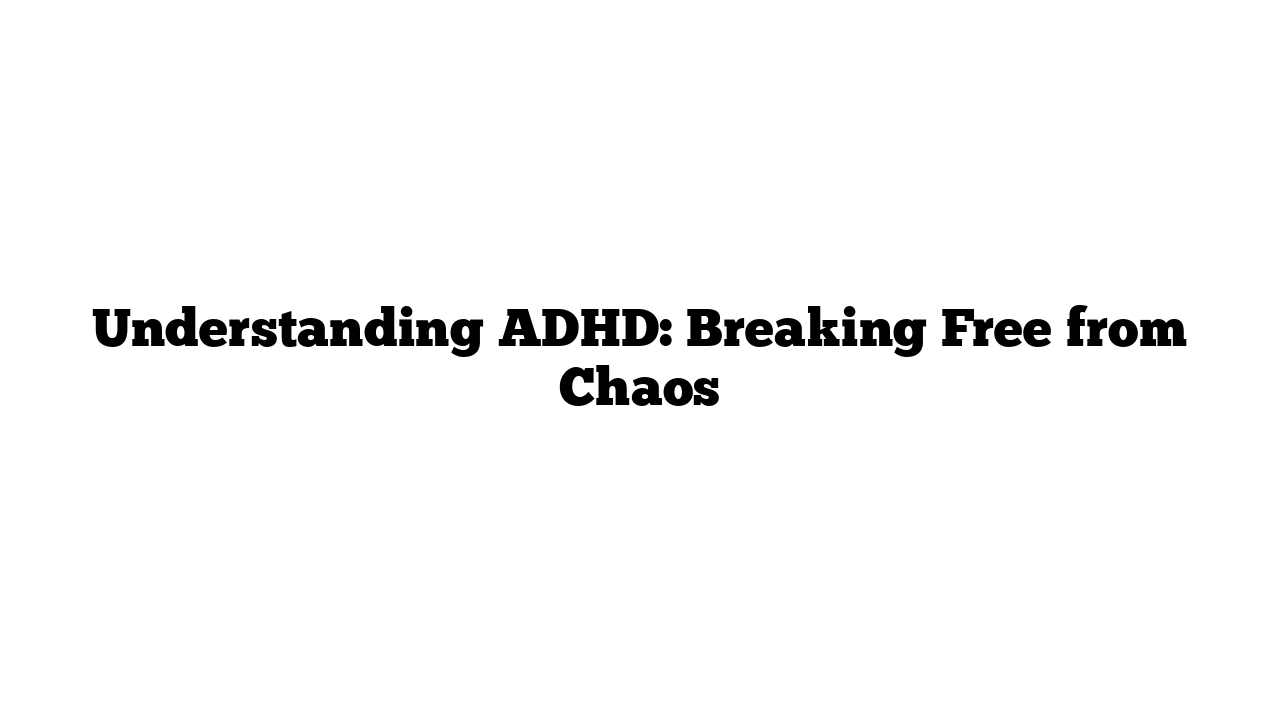If you have ADHD, you probably feel overwhelmed. Despite your best efforts to stay organized and in control, life can often feel chaotic. Today, we’ll explore how to break free from that cycle.
The Real Challenge of ADHD
The true burden of ADHD isn’t just about having a different frontal lobe that makes attention and focus difficult. The real struggle is that you have untapped parts of your brain that you often don’t use due to the way you adapt to ADHD.
From a young age, you learn that your brain operates differently. While others may find certain tasks easy, you may struggle, leading to a cycle of frustration. This fear of failure can consume your focus, resulting in a paradox: the more you worry about messing up, the more likely you are to do so.
It’s like trying to fall asleep while panicking about being tired the next day. The harder you try to relax, the more awake you feel. Similarly, in ADHD, focusing on avoiding failure often leads to just that—failure.
The Cycle of Chaos
As you experience repeated failures, you face two choices:
- Try hard to succeed, only to fail anyway.
- Accept the failure and relieve the pressure.
Interestingly, many with ADHD discover they perform better in chaotic situations. The brain adapts, leading to a competitive advantage in environments filled with external stimuli.
When deadlines loom, and panic sets in, you may find yourself thriving in the pressure. Yet, this coping mechanism can become a trap, leading you to create chaos to avoid failure. You excel in damage control, but struggle with preventing issues in the first place.
The Importance of Habit
A significant challenge of ADHD is the inability to build consistent habits. Your frontal lobe, responsible for attention and impulse control, is impaired. However, your basal ganglia, the part of your brain that governs habits, remains intact.
Habits are automatic actions that don’t require focus or attention. Unfortunately, if you consistently engage in chaotic behavior, your ability to form healthy habits diminishes. Without habits to fall back on, your ADHD may worsen.
The Power of Cognitive Reframing
One intact capability you possess is cognitive reframing—the ability to analyze situations and draw accurate conclusions. However, applying this analytical capability effectively can be a challenge when your attention wanders.
Recognizing that failure may be inevitable, the goal should be to delay it as long as possible. This approach allows time for your brain to form new habits.
Learning from Gamers
Consider the example of a team of professional gamers who often choked under pressure. Instead of giving up when losing, they learned to delay defeat. By making opponents work harder for their wins, they improved their performance, even making unexpected comebacks.
The lesson here is about not surrendering to chaos too quickly. Instead, commit to doing your best for as long as you can. This mental shift can lead to forming new habits and harnessing the parts of your brain that help you succeed.
Moving Forward
The real curse of ADHD is not the inherent difficulties of the condition but the adaptations you make in response to those challenges. By embracing strategies like cognitive reframing and habit-building, you can shift from a chaotic existence to a more structured, fulfilling life.
Remember: You are not defined by your struggles. Instead, focus on leveraging your strengths to create a better path forward.
